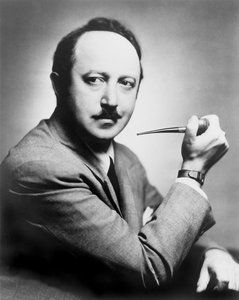A Quote by Philip Kitcher
One of the things I want to do in the book is to explore how philosophy can be done in literature. I start doing that in the first chapter, by introducing the idea of "philosophy by showing". What literature/philosophy shows is how to look at some important facets of life in a new way, thus changing the frame in which subsequent philosophical argument proceeds.
Related Quotes
In elaborating how "philosophy by showing" works, and in defending the idea that literature and music can contribute to philosophical "showing", I am also doing something more standardly philosophical. But I view most of the book as an interweaving of philosophy and literary criticism. If that entails a broadening of a standard idea of philosophy, it's a broadening I'd like to see happen.
Philosophy by showing - including philosophy in literature - does truly valuable work in leading us to new perspectives from which our arguments can then begin. It does so by introducing new synthetic complexes, which we then reflect on from various points of view. When the complexes survive and grow, that initial showing has been philosophically decisive.
Philosophy - reduced, as we have seen, to philosophical discourse - develops from this point on in a different atmosphere and environment from that of ancient philosophy. In modern university philosophy, philosophy is obviously no longer a way of life, or a form of life - unless it be the form of life of a professor of philosophy.
In the end, we learn about the most basic philosophical questions - like "How to live?" - from a broad mixture of sources, including literature and philosophy, history and anthropology. These sources can guide our reflections on our own experiences, as we explore and reconsider. Mann contributed to such explorations in a distinctive way, and I hope my book brings that out.
This is an extremely ambitious book. In addition to science and mathematics, Byers brings to bear insights from literature, philosophy, religion, history, anthropology, medicine, and psychology. The Blind Spot breaks new ground, and represents a major step forward in the philosophy of science. The book is also a page-turner, which is rare for this topic.
It started becoming clear to me how one might have views about the nature of mind and of knowledge which are empirically informed. This way of thinking about philosophical theorizing makes sense of how philosophy might be a legitimate intellectual activity, in a way that a good deal of the armchair philosophy, I believe, cannot.
Philosophy aims at the logical clarification of thoughts. Philosophy is not a body of doctrine but an activity. A philosophical work consists essentially of elucidations. Philosophy does not result in 'philosophical propositions', but rather in the clarification of propositions. Without philosophy thoughts are, as it were, cloudy and indistinct: its task is to make them clear and to give them sharp boundaries.






























